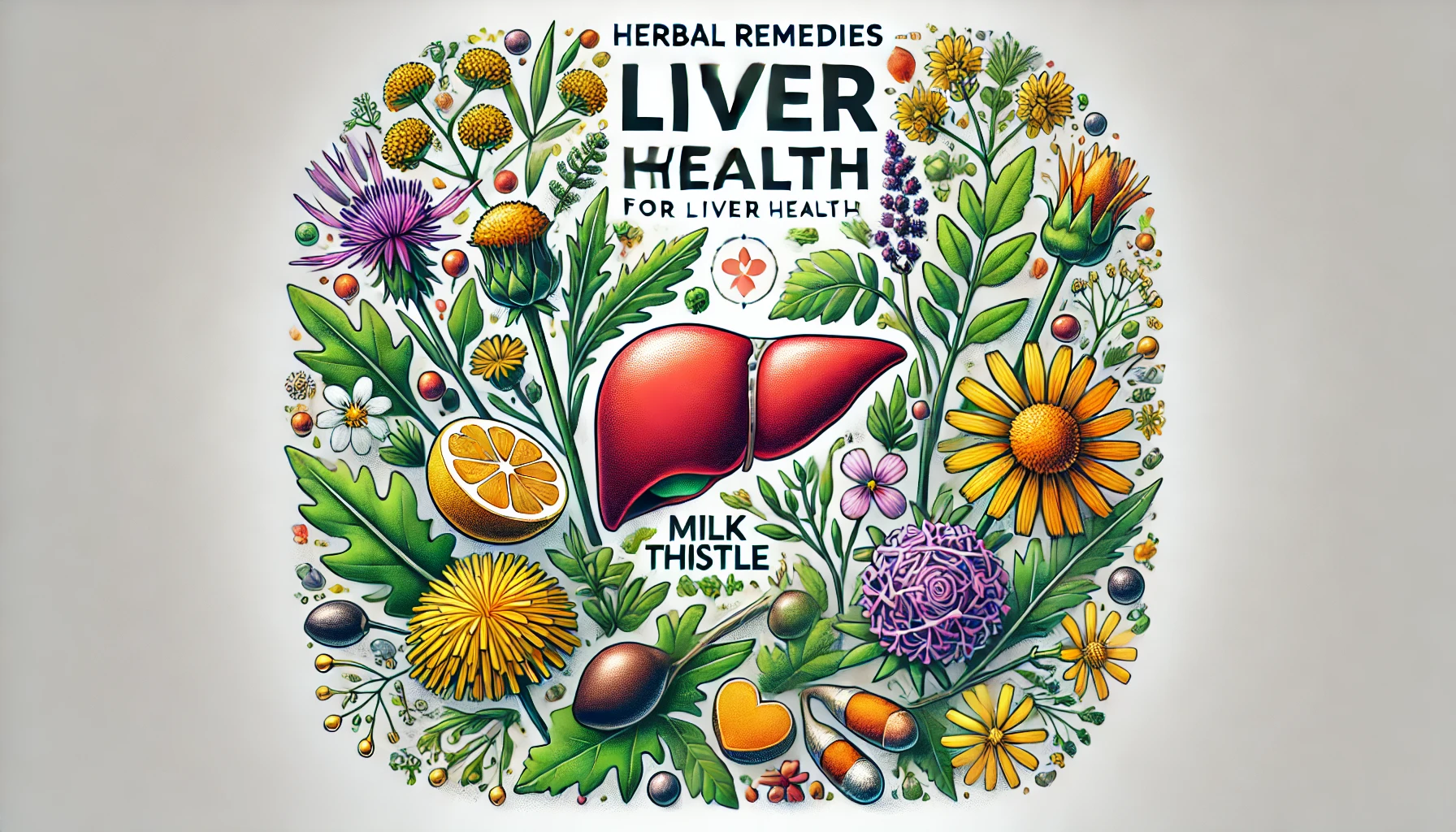The use of herbal remedies for enhancing liver health has grown in popularity, driven by a desire for natural treatment options. This guide evaluates the effectiveness of common herbs such as milk thistle, dandelion, and turmeric, separating fact from fiction based on scientific evidence.
Key Points
- Popular Herbs: Overview of herbs commonly used for liver health.
- Scientific Evidence: What research says about the effectiveness of these herbs.
- Myths vs. Reality: Debunking common misconceptions about herbal remedies.
- Safe Usage: Guidelines for using herbal remedies safely.
Popular Herbs Used for Liver Health
Many herbs are touted for their liver-protective properties. Here are a few widely recognized:
Milk Thistle
Known for its active compound silymarin, milk thistle is believed to protect liver cells and stimulate repair. It has been used for centuries to treat liver and gallbladder disorders.
Dandelion
Traditionally used for its diuretic effect and support in liver detoxification, dandelion root is thought to help cleanse the liver and improve bile flow.
Turmeric
Containing curcumin, turmeric has powerful anti-inflammatory and antioxidant properties. It is believed to protect the liver from damage and support overall liver function.
Artichoke
Artichoke extract is known for its potential to increase bile production, helping the liver process fats more efficiently. It also contains antioxidants that may help protect liver cells from damage.
Green Tea
Rich in catechins, antioxidants found in green tea may help improve liver function and protect against liver disease. Regular consumption has been linked to lower liver enzyme levels.
Understanding these herbs and their supposed benefits is the first step in discerning their actual effectiveness.
Scientific Evidence Supporting Herbal Remedies
Recent studies have shed light on the efficacy of herbal remedies for liver health:
Milk Thistle
Research generally supports its use in treating liver diseases, especially cirrhosis and hepatitis, by helping to regenerate liver tissue. Studies have shown that silymarin can improve liver function tests and may even reduce liver inflammation and fibrosis.
Dandelion
While traditional uses include liver detox, scientific backing is limited. Some studies suggest dandelion root extract can have liver-protective effects, but more research is needed to confirm these benefits.
Turmeric
Clinical trials suggest that turmeric can help manage oxidative stress and inflammation related to liver conditions. Curcumin has been shown to reduce liver fat and improve liver enzyme levels in patients with non-alcoholic fatty liver disease (NAFLD).
Artichoke
Some evidence supports its use in treating non-alcoholic fatty liver disease (NAFLD) and improving overall liver function. Artichoke extract has been found to reduce liver enzyme levels and improve symptoms of liver dysfunction.
Green Tea
Studies have indicated that regular consumption of green tea can lower the risk of liver disease. The catechins in green tea may help reduce liver fat and inflammation, supporting liver health.
These findings help individuals make informed decisions about incorporating herbal remedies into their liver health regimen.
Myths vs. Realities
With the proliferation of information online, several myths regarding the effectiveness of herbal remedies persist:
Myth: Liver Cleanses Cure Liver Diseases
Fact: Liver cleanses can support liver function but are not a cure for liver diseases. Proper medical treatment is necessary for liver conditions like hepatitis and cirrhosis.
Myth: Detox Drinks Can Flush Out All Toxins
Fact: The liver naturally detoxifies the body. Detox drinks may aid the process but cannot replace the liver’s function.
Myth: Herbal Remedies Are Always Safe
Fact: Not all herbs are safe for everyone; interactions with medications or pre-existing conditions can pose risks. Always consult a healthcare provider before starting any new herbal treatment.
Myth: You Need Expensive Supplements for Effective Liver Health
Fact: Many effective liver cleanse methods involve simple dietary changes and natural remedies. Whole foods and lifestyle adjustments can provide substantial liver support.
Dispelling these myths is crucial for anyone considering herbal remedies for liver health.
Safe Use of Herbal Remedies
To safely use herbal remedies for liver health, consider the following guidelines:
Consultation with Healthcare Providers
Always discuss any new supplements with a healthcare provider, especially if you have pre-existing conditions or take other medications. This ensures that the herbal remedies will not interact negatively with your current treatments.
Quality and Dosage
Choose high-quality products from reputable sources and adhere to recommended dosages to avoid potential toxicity. Check for third-party testing and certifications to ensure the purity and potency of the herbs.
Monitoring
Keep track of any changes in your health and symptoms to ensure no adverse effects occur. Regularly consult with your healthcare provider to monitor liver function and adjust dosages if necessary.
These precautions help ensure that the use of herbal remedies contributes positively to liver health without unintended consequences.
Conclusion
While some herbal remedies like milk thistle and turmeric show promise in supporting liver health, it is essential to approach their use with an informed perspective. Understanding the scientific evidence, separating fact from fiction, and using these remedies safely are key to deriving any potential benefits.
Before starting any new herbal treatment for liver health, consult with your healthcare provider to ensure it is appropriate for your specific health needs. Stay informed and cautious to make the most of natural remedies without compromising your health.


